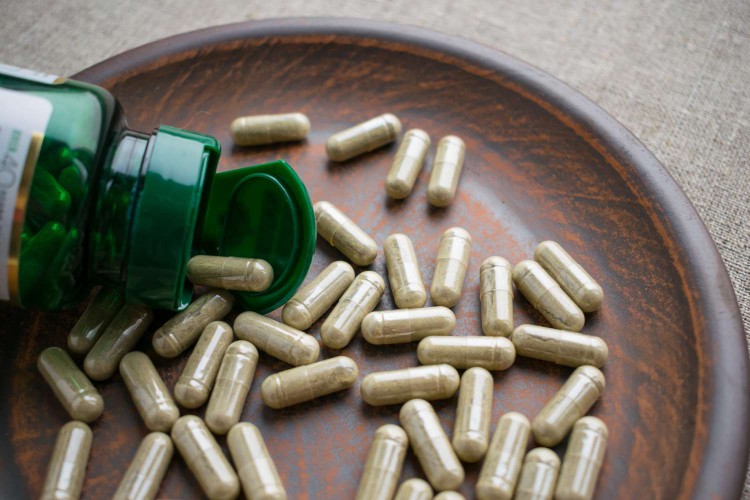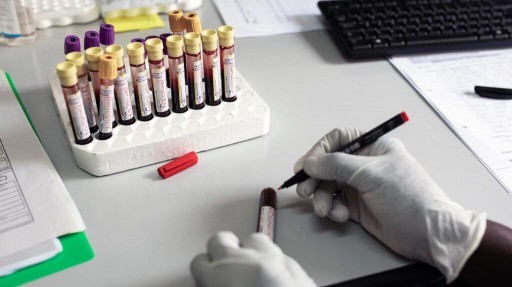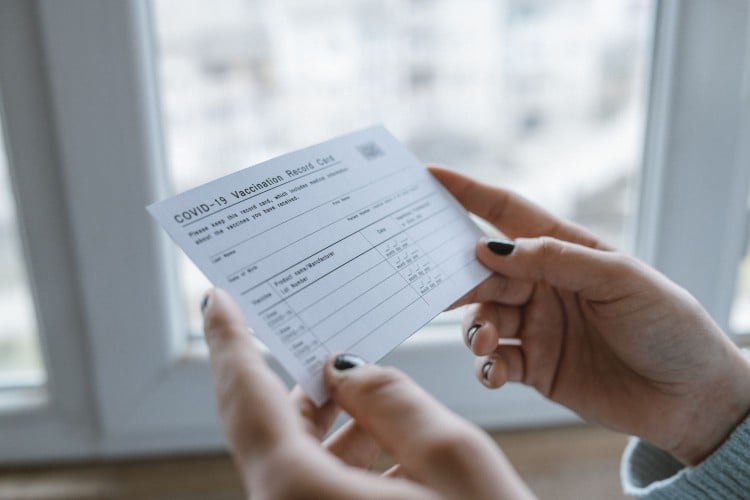- Biotin is a B vitamin involved in metabolism that may have benefits for skin, hair, and nails.
- Some over-the-counter biotin supplements exceed the recommended daily dose of the micronutrient, but experts note that is rarely a reason for concern.
- Experts recommend people worried about their biotin intake speak to a trusted healthcare professional.
Getting enough biotin is important—but is it possible to get too much?
Originally called vitamin H, biotin has been recognized as a micronutrient since 1927. Since then, the vitamin quickly became a popular dietary supplement.
And, usage of the supplement still appears to be on an upward trajectory. According to 2020 research, the prevalence of biotin use increased from 0.1% of the U.S. adult population in 1999–2000 to 2.8% in 2015–2016.
Biotin is best known for its beneficial effects on skin, and getting enough of it (30 micrograms per day for adults) supports other areas of health as well.
“Meeting biotin needs is important for hair health, hormone health, and metabolism,” Vanessa King, MS, RDN, clinical nutrition manager for The Queen’s Health System in Honolulu, Hawaii, and spokesperson for the Academy of Nutrition and Dietetics, told Health.
While biotin intake is worth prioritizing, there is the possibility of too much of a good thing.
Here’s how much biotin is necessary, as well as the side effects of consuming too much.

Getty Images / Iryna Imago
What Is Biotin?
Despite its original “H” moniker, biotin is a B vitamin. Now, it also goes by the name vitamin B7.
It’s a cofactor for multiple enzymes involved in the metabolism of fats, proteins, and carbohydrates. In other words—it helps the body convert food into energy.
Besides its effects on metabolism, biotin has been studied for its potential impact on skin health and hair growth.
King explained that biotin deficiency is associated with skin rashes, hair loss, and brittle nails.
Some research has shown that increased biotin intake could make a meaningful difference for people with these health issues.
For example, a 2017 study of 18 people found that biotin helped improve hair and nail growth.
However, some experts say there’s insufficient research to prove a connection between biotin and healthier hair and nails.
“I don’t recommend biotin supplementation regularly for patients with hair loss,” Anthony Rossi, MD, dermatologist and Mohs surgeon at Memorial Sloan Kettering Cancer Center, told Health. “Most studies have shown no benefit with biotin supplementation unless someone has a lab-proven biotin deficiency.”
According to the National Institutes of Health Office of Dietary Supplements, only case reports—not research studies—have supported claims that biotin supplements promote hair and skin health.
The 8 Best Eyelash Growth Serums to Volumize and Lengthen Your Look
Who Can Benefit From Biotin Supplements
Though research may not have proven a connection between biotin and stronger nails, skin, and hair, B7 supplements may still be worth a try.
Anecdotal reports indicate that some people do experience benefits in these areas, Reid Maclellan, MD, adjunct faculty at Harvard Medical School and founder and CEO of dermatology app Cortina, told Health.
“While there is no evidence to support the claim that taking biotin will help with improving the health or overall appearance of your hair, nails, and growth, there are some people who have some success with the rate of nail or hair growth after taking a biotin supplement,” he said.
A biotin deficiency is another reason you might need to turn to supplements.
“There is such a thing as a biotin deficiency, but it is not common,” said Maclellan. “This deficiency is most common in pregnant women, when alcohol intake is high, in smokers, and during malnourishment.”
Bacterial imbalances in the GI tract from antibiotics or inflammatory bowel disease can also put people at risk of biotin deficiency, Rossi said.
Too Much Biotin Can Result in Undesirable Side Effects
The recommended daily intake of biotin is 30 micrograms, but many over-the-counter supplements exceed this level.
NOW Foods’ extra-strength biotin capsules, for example, contain 10,000 micrograms, and Pure Research liquid biotin drops supply a staggering 20,000 micrograms per dose.
So, are levels this high dangerous?
In general, no. There is no established upper limit—toxic level—for biotin, in part because the body flushes out what it can’t use.
“It is difficult to consume too much biotin from supplementation because it is a water-soluble vitamin, and if consumed in excess will be detoxed through urine,” Maclellan said.
Then again, that doesn’t mean you won’t experience any side effects from overdoing it on biotin.
Maclellan explained that some people report nausea or gastrointestinal upset, and sleep complications or dehydration can occur, too.
According to King, very high biotin supplementation can also interfere with the results of certain lab tests, such as thyroid and troponin.
The 8 Best Vitamins for Healthy Hair Growth, According to Experts
How to Get Enough Biotin From Your Diet
Most people can get enough biotin from a well-rounded diet.
A surprising array of both plant and animal foods contain this nutrient.
To ensure your intake is sufficient, King recommends focusing on the following:
- Beef liver
- Eggs
- Canned salmon
- Sunflower seeds
- Sweet potatoes
- Almonds
If you’re concerned your diet isn’t giving you the biotin you need, talk to your doctor or registered dietitian about the possibility of supplementing.
Though they may recommend a supplement to help you reach your daily 30 micrograms, you may not need—or even be able to use—the extremely high levels of many commercial supplements.








